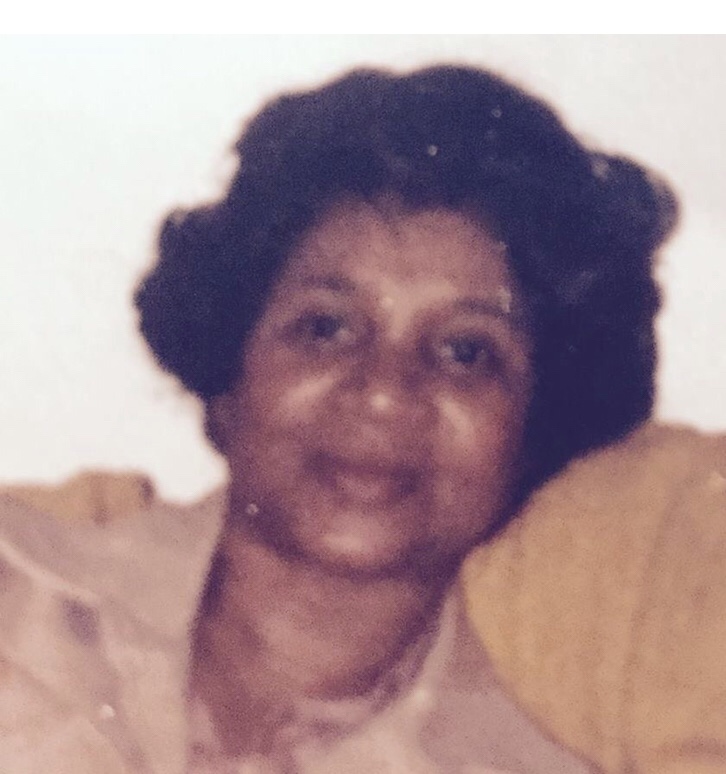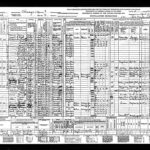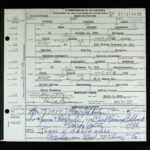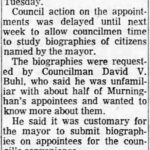
Date of Birth
June 11, 1925
Place of Birth
Holly Springs, Mississippi
Towns / Cities Moved Into
Chicago, Cook, Illinois, USA
Known Occupation
Professional housekeeper
Cashier / clerk in a drugstore
Religion
-
Death Information
Year of death
October 12, 2021
Place of death
-
Cause of death
-
Burial location
Chapel Hill Memorial Gardens, DeWitt, Clinton County, Michigan, USA
Obituary

Parents

Franklin Alexander

Cecelia Suggs
Marital Status


Married Theodore Joseph "Ted" Davenport
December 25, 1941
Cook, Illinois
Children






Narrative / Story
Bernice Alexander was born on June 11, 1925, in Chicago, Illinois, USA. During the 1920s, Chicago was a city of vibrant growth and change, marked by economic prosperity and significant social dynamics. Known as the “Roaring Twenties,” this period was characterized by rapid industrialization, urbanization, and cultural flourishing, but it also carried the complexities of racial segregation and economic disparities.
Bernice grew up in a large family with 13 brothers and sisters, some of whom ventured into the entertainment business. Her sister Mussette was a singer, and another sister, Dixie Gale, was particularly notable. Dubbed the “black Marilyn Monroe,” Dixie Gale was very pretty and sexy, and she was friends with Frank Sinatra. One of her sister Dixie’s boyfriends was Jerry Butler, famously known as the Ice Man. At the time, her son Greg’s office was in front of Jerry Butler’s office, allowing him a glimpse into the life of his famous Aunt. Bernice herself had a deep passion for music. She loved listening to artists like Barbra Streisand, Aretha Franklin, and Mahalia Jackson, and had a remarkable talent for singing. Bernice could sing anything and once appeared on TV for a contest, performing “He’s Got the Whole World in His Hands.” Her musical talent and love for iconic singers of her time added to the rich cultural tapestry of her family and personal life.
Bernice Alexander’s life took a pivotal turn when she turned 16. She met Theodore Davenport while working in a drugstore selling ice cream, owned by a Jewish couple. The warmth and charm of the small shop created a perfect backdrop for their blossoming connection. Their relationship flourished, and on December 25, 1941, they were married in Chicago, Illinois.
The early 1940s in Chicago were a time of significant transformation. The city, still shaking off the remnants of the Great Depression, was now buzzing with the energy of economic recovery driven by the war effort. Factories were booming, producing everything from machinery to wartime supplies, bringing jobs and a sense of purpose to many residents. The sense of community was strong as people from diverse backgrounds united in support of the war.
For Bernice and Theodore, this was a time of both hope and uncertainty. They began their life together in Chicago, a city bustling with activity and change. Shortly after their marriage, they started their family, bringing both joy and challenges as they navigated the early years of parenthood. Bernice, like many women of her time, balanced the demands of home and family with the external pressures of a world at war. Eventually, seeking better opportunities and stability, they decided to move to Lansing, Michigan, where they continued to build their life together amidst the ongoing challenges of wartime America.
In Lansing, their son Theodore Jr. was born, marking a new chapter in their growing family. They bought a home on Main Street, which included apartments, making Bernice the first person in her family to become a homeowner at just 17 years old. This achievement was a significant milestone and a source of immense pride for Bernice and her family.
Bernice’s parents moved from Chicago to live with her and her children in order to save money to buy a home for themselves as well. The family home became a bustling center of activity and support, with multiple generations under one roof. Bernice’s resourcefulness shone through as she helped her parents secure jobs at a factory called International Harvester, ensuring that the family could work towards their collective goal of homeownership and stability.
Theodore was assigned to train as an artillery man, a crucial role for the war effort. However, an injury during training prevented him from joining his unit in active combat. Bernice, while deeply concerned for Theodore’s well-being, welcomed him home with open arms. His return, although under unfortunate circumstances, became a blessing in disguise as it led to the birth of their son, Lawrence.
After Theodore was discharged from the military, he aspired to get certified in refrigerator repair. Seeing potential in this field, he and Bernice made the difficult decision to sell their house on Main Street. However, despite his qualifications, no one wanted to hire a Black refrigerator repairman. Faced with this discrimination, they decided to move back to Lansing to be closer to Theodore’s mother and seek better opportunities.
Life in Lansing proved to be challenging, especially during periods when Theodore was laid off from his job at REO Motors. The family had to adapt to living on Middle Street, crammed into a two-bedroom apartment with twelve children. Despite the cramped and difficult living conditions, Bernice remained a pillar of strength for her family.
Bernice was an incredibly hardworking mother, dedicated to providing for her children and ensuring their well-being. Every morning, she was there to prepare for her children and send them off to school. Throughout the day, she traveled to East Lansing to clean other people’s houses, earning whatever she could to support her large family. She made sure to be home when her kids returned from school, offering them the comfort and stability they needed.
Her day did not end there. After ensuring her children were asleep, Bernice would head to her night shift job, working as a janitor for the local high school. She would return home before her children woke up, maintaining the illusion that she was always present, even though she was tirelessly working to keep the family afloat. Most of the younger children were unaware of the extent of her work, believing that their mother was always there for them.
The relentless hard work and dedication Bernice showed did not go unnoticed. When her housekeeping jobs eventually came to an end, an opportunity arose that would change their fortunes. The husband of one of the women she worked for was an executive at General Motors. Recognizing Theodore’s potential and the family’s need, he helped Theodore secure a job at Fisher Body, a division of General Motors.
From these humble beginnings, Bernice Davenport began to work in local politics for the Michigan Democratic Party. Her dedication and hard work soon gained the attention of prominent political figures, including Governor G. Mennen Williams and the local Democratic organization. Bernice also played a significant role in the election of John F. Kennedy, tirelessly working for his campaign. Her commitment did not wane after the election; she continued to volunteer for the Democrats, earning a reputation for her tireless efforts and dedication.
After the Democratic landslide of 1964, Bernice was sponsored by the party for a patronage job as a clerk and bathroom attendant at the state senate offices. Bernice was also an active campaign worker for the mayor in 1965. Following the 1966 election, she was reassigned to be the matron in the female Capitol lavatories and a coat room clerk. However, the political landscape had changed; George Romney and the Republicans were now in charge, putting her job in jeopardy. Thankfully, with the intercession of Senators Basil Brown and Coleman Young, Bernice was reappointed to her job after the 1968 elections. Through her role, she had the opportunity to interact with prominent Democratic candidates, including Robert F. Kennedy and George Wallace.
Bernice’s outgoing personality and dedication made her a favorite at the Capitol, earning the respect and attention of Governors George Romney and William Milliken. Her hard work did not go unnoticed. One day, Mr. Houston, the director of the Social Services Department, inquired about her education. When he learned that Bernice had dropped out of school to marry Theodore, he challenged her to obtain her GED, promising a professional position if she succeeded.
Determined, Bernice went to the Board of Education with her grandchildren in her arms and signed up for the test. Remarkably, she passed both parts of the GED exam in two days without studying. However, when she presented the results to Mr. Houston, she was told that no job was available. Bernice did not let this setback deter her. She relayed the situation to Governor Romney and the Lieutenant Governor. In response, Governor Romney directed Mr. Houston to create a position for Bernice. Thus, she became the first Equal Employment Opportunity (EEO) officer in the state of Michigan, a groundbreaking role.
Bernice excelled as the director of opportunity programs for social services, a position she held for over twenty-two years until her retirement in the early 1990s. She was instrumental in placing many Black officials in government roles, significantly impacting the representation of African Americans in Michigan’s state government. Additionally, Bernice served the City of Lansing on the Human Relations Commission and played a key role in establishing Christo Rey Church.
Bernice’s rise in the Democratic Party and her subsequent career were testaments to her intelligence, determination, and resilience. Starting from a matron cleaning restrooms at the Capitol, she built a legacy that included significant contributions to equal opportunity programs and the advancement of Black professionals in government. Her story is one of perseverance, dedication, and the unwavering belief in the power of education and hard work.



